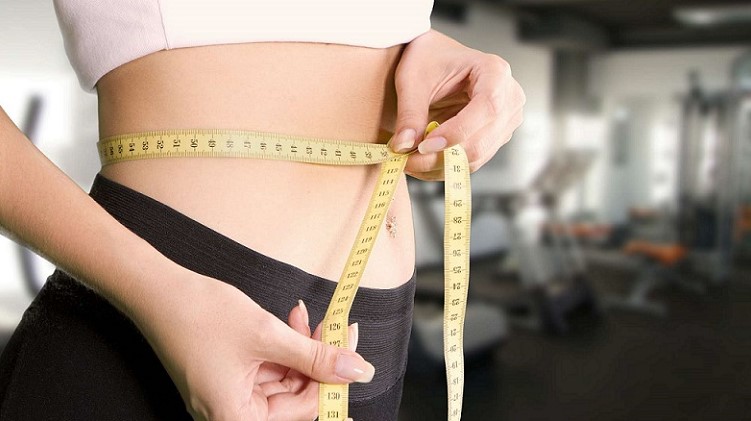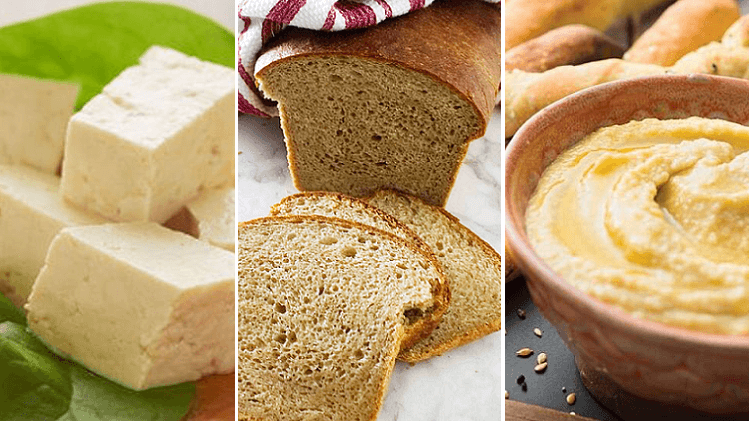An increasing number of people, motivated by claims of improved health and compassion toward animals, have adopted a Vegan diet in recent years.
But it’s not just regular folks who are curious about this diet; athletes, including bodybuilders are also now known to be strong advocates for this type of diet. This guide reveals what a Vegan bodybuilding diet is all about,the health benefits derived from this type of dietary plan, and the best 5 Vegan bodybuilding diet foods you should consider today.
What Exactly Is A Vegan Bodybuilding Diet?
In general, a Vegan bodybuilding diet consists primarily of high-protein foods. The objective is to eat plenty of nutrient-dense food in a way that helps you gain muscle while losing fat.
The vegan diet would normally entail not eating any meat or animal products (including cheese, milk, and other dairy items). Instead of getting your high protein content from animal products, a Vegan bodybuilding diet means that you have to rely on consuming large amounts of high-protein plant-based meals in order to meet your daily protein requirement.
You should consume between 1.6 and 2.2 grams of protein per kilogram of body weight during your “off season” as a bodybuilder which is pretty much the majority of the year. It is a known fact in the world of bodybuilding that the calorie intake of bodybuilders during their off season is often greater than their calorie intake during their preparation for a bodybuilding competition.
Typically, most competitive bodybuilders require between 2.3 grams and 3.1 grams of protein per kilogram of bodyweight during their peak training.
Note that you can convert your bodyweight in pounds (lb) by dividing your weight in kilograms (kg) by 2.2.
However, in order to prevent muscle loss, a high protein intake is recommended during preparation for a bodybuilding contest despite the fact that a low caloric intake relative to energy needs is necessary.
To give you a better idea, for a person with a body weight of 200 pounds (90.7 kilograms), their recommended daily allowance for protein would be between 208 to 281 grams. This daily protein allowance is roughly between three to five times what the average individual requires. Given this significant number, vegan bodybuilders may require additional protein supplements along with their high-protein plant-based diet in order to meet their nutrition and training goals.

Benefits Of A Vegan Bodybuilding Diet
A Vegan bodybuilding diet has the potential to be a healthy choice for anyone looking to grow skeletal muscle.
Several possible health benefits have been linked with a vegan diet and some of these are:
#1. Protection Against Coronary Disease
People on a Vegan bodybuilding diet appear to have a lower risk of having cardiovascular disease than the general population.
It’s possible that this is due, in part, to these people eating less cholesterol and animal fat. Instead a Vegan bodybuilding diet provides dieters with more dietary fiber, essential nutrients and loads of other plant-based minerals and compounds.
Generally speaking, vegans are also known to have lower rates of hypertension as well as LDL (or bad) cholesterol compared to the general population.
Fruits and vegetables, which are abundant on the vegan bodybuilding diet, are a good source of dietary fiber. Lower rates of stroke and heart disease have also been linked to higher fiber consumption.
#2. Promotes Healthy Body Weight
The risk of several diseases is reduced in those who follow a vegan bodybuilding diet because their body mass index (BMI) is normally lower than those who stick with a conventional Western-styled diet.
The effects of a vegan diet on 75 overweight persons were examined in a 16-week study. Study participants saw greater improvements in their fat mass, body weight, and insulin resistance indices after adopting a vegan diet compared to those who followed a control diet.
In light of this, a vegan diet may be helpful if you’re just starting out in bodybuilding and have a few extra pounds to shed.
#3. Possible Protection Against Some Malignant Cancers
A Vegan bodybuilding diet has been linked to a lower risk of cancer compared to a standard Western-styled diet, as reported in several studies.
By consuming a greater amount of vegetables, fruits, and legumes, you would subsequently increase the amount of phytonutrients, micronutrients, and dietary fiber in your body. These compounds are known to be great in protecting the body from the growth of malignant cancer.
A lower body mass index has also been connected to a vegan bodybuilding diet.m and a high body mass index (BMI) is known to be a contributing factor to the development of certain malignant cancers.
Furthermore, studies have shown that people running a vegan bodybuilding diet with a greater emphasis on soy consumption have a lower chance of developing breast cancer.
Finally, consumption of processed red meat at any level is associated with an increased threat of colon cancer. The risk of developing colon cancer in those who choose to follow a vegan bodybuilding diet is significantly lower compared to those that consume red meat on a regular basis.

The Best 5 Vegan Diet Foods for Bodybuilders
A Vegan bodybuilding diet should consist of a mix of grains, seeds, nuts, plant-based protein, healthy plant-based fats and oils, fruits, vegetables, and so on. Here is our pick of the best 5 Vegan diet foods for bodybuilders to take note of;
#1. Ezekiel Bread:
There are a number of ways in which Ezekiel bread stands out from the crowd. Ezekiel bread, in contrast to most other breads, has no added sugar. Also, it’s created from organic, whole, sprouted grains and legumes. It’s important to note that the entire nutritional profile of grains and legumes is drastically altered throughout the sprouting process.
Ezekiel bread is made using a variety of grains and legumes, as opposed to the refined wheat or whole wheat flour found in most commercial breads.
We have four different types of cereal grains, namely; barley, millet, wheat and spelt while there are two types of legumes, namely; lentils and soybeans. The grains and legumes used in making Ezekiel bread are all cultivated organically and sprouted before being processed, mixed, and then baked.
However, as Ezekiel bread is made from barley, spelt and wheat, it is not suitable for anyone with non-celiac gluten sensitivity or celiac disease.
#2. Hummus:
As a complete protein, hummus not only meets the requirements of the most essential food category, but it also provides a wealth of health benefits. Chickpeas are made primarily of legumes, which are generally low in fat, cholesterol-free, and abundant in other nutrients including folate, magnesium, potassium, and iron.
The addition of Tahini (a Middle Eastern condiment, typically made from sesame seed) makes the mixture a complete protein that provides all nine necessary amino acids. Vegans can benefit greatly from eating this!
The majority of humus’s constituents have a high nutrient density. They have a healthy balance of macro and micronutrients, and very little of their calorie intake is squandered. However, it’s important to watch the fat content of store-bought hummus, as it can easily exceed your recommended daily allowance.
You may boost the health benefits derived from hummus even further by including some wholemeal pita bread. Add some raw vegetables like carrots, cucumbers, and peppers, and you’ve got yourself a delicious and portable meal.
#3. Seeds:
Seeds like chia seed, sunflower seed, flaxseed and hemp seeds are essential for your Vegan bodybuilding diet. These seeds provide you with a decent amount of omega-3 fatty acids and protein.
#4. Tofu:
Tofu or otherwise known as bean curd is a food made from soy milk through coagulation followed by the pressing out the curds to form a whitish block with varying degrees of softness. Tofu is rich in calcium, iron, magnesium, and protein while being low in calories.
#5. Quinoa:
This is a gluten-free seed that serves as a fantastic substitute for popular grains like white rice. Quinoa is high in dietary fiber and protein, but low in fat while having other nutrients like iron and B vitamins. You can start your Vegan bodybuilding diet by including these five foods today.

In Conclusion
Many people, including those in the bodybuilding community, are taking notice of the Vegan diet due to its increasing popularity.
Vegan bodybuilding diets are high in protein and exclude all products derived from animals, which are typically found in other standard bodybuilding diets.
A vegan diet has been shown to have many health benefits when it comes to bodybuilding. However, before embarking on a vegan diet, it’s advisable that you talk to your doctor or a nutritionist.


